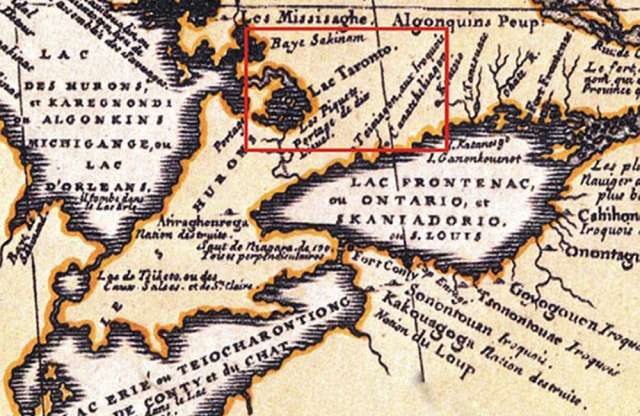Forgotten Weapons
Published on 8 May 2019Preorders now open for my book, Chassepot to FAMAS: French Military Rifles 1866-2016! Get your copy here: https://www.kickstarter.com/projects/…
http://www.patreon.com/ForgottenWeapons
Cool Forgotten Weapons merch! http://shop.bbtv.com/collections/forg…
The Owen submachine gun is one of the ugliest SMGs ever designed, and yet also one of the most beloved by its users. The original basis for the gun was a .22 rimfire submachine gun designed by 23-year-old Australian Evelyn Owen. That prototype was found by his neighbor Vincent Wardell after Owen left for military service. Wardell was the manager of Lysaght Works, an engineering firm, and thought that the gun might be the basis for a useful military SMG. As it turned out, he was right – it became the standard SMG of The Australian military through World War Two and the Korean War, and was one of the best such guns of that period. For more details on the history of the Owen, see my full article:
https://www.forgottenweapons.com/subm…
Thanks to Movie Armament Group in Toronto for giving me the opportunity to bring you this video! Check out MAG on Instagram: https://instagram.com/moviearmamentsg…
Contact:
Forgotten Weapons
PO Box 87647
Tucson, AZ 85754
July 13, 2019
Local Boy Saves Nation: The Australian Owen SMG
July 2, 2019
The Rainmaker – Ualarai Stories – Australian Aboriginal Myth – Extra Mythology
Extra Credits
Published on 1 Jul 2019Join the Patreon community! http://bit.ly/EMPatreon
During a terrible drought, the people wondered why Wirreenun, the Rainmaker, was doing nothing, if he was the one who could bring the rains back. It turned out that he really needed to do an extremely complex elaborate ritual to make the people learn how to take care of themselves.
June 29, 2019
Determining who the “original” inhabitants were
It’s become quite common in some countries to pay formal lip service to the “original” peoples who inhabited the land before being dispossessed of that territory by various Europeans. Actually determining who were the first human inhabitants, however, is much more fraught … you can’t exactly expiate some residual guilt of your culture by acknowledging the previous culture if the previous culture in their turn dispossessed an even earlier group, can you? How far down the rabbit hole do you need to go? Tim Worstall explains:

Detail from a 1688 map of western New France by Vincenzo Coronelli that locates “Lac Taronto” at Lake Simcoe.
City of Toronto Culture Division/Library and Archives Canada via the National Post
… within all that the accurate answer to “Whose land are we on?” is the land of the latest bunch of murderous bastards who killed all the previous inhabitants. Perhaps moderated to say the peeps who killed all the previous men then dated the remaining womenfolk. Because once we’ve got past that nullius stage that’s the way it has been. The Moriori are in short supply these days on the Chatham Islands given that the Maori decided to eat them.
The original inhabitants of the British Isles, the Beaker Folk, were entirely replaced by the next lot, the Iron Age Celts and similar. The Angles displaced to the west the Romano Celts in their turn, detailed DNA studies showing rather more of the female side of the R-C’s bred into the new population than the male. The Franks weren’t indigenous to France, the Allemani to Germany, the Turks to Turkey.
In fact, we’ve between little and no proof that the varied Amerinds were the original inhabitants of the lands where the White Europeans found then from 1492 onwards. In the case of both the Incas and Aztecs as political powers, proof they weren’t. And horses and Plains Indians simply weren’t a thing until the Eurasian horse was introduced post 1492.
Basically, this is indeed true. Anywhere is the possession of simply the last group of people to have slaughtered, or outbred, the previous group.
An interesting observation – if we apply the oft stated Americas example elsewhere, that Whitey stole it all and should give it back, then the Bantu should be back in Nigeria and Central Africa returned to the Pygmies, Southern to the Khoi San. We don’t say that and for the life of me I can’t work out why.
June 4, 2019
QotD: Freedom of speech and “balancing” competing rights
“They used to pay lip service to the Voltaire argument,” [“I disagree with what you say, but will defend to the death your right to say it”] says Steyn, “but now they say that every other right trumps freedom of speech. The rights of identity groups take precedence. Since there is no document in the British Commonwealth to support free-speech absolutism, as you have in the United States, what’s happened in our time is that there is a view of competing rights. Section 13 in Canada. Section 18 in Australia. Human rights commissions everywhere. And it’s all done in the name of ‘striking a balance’. The minute you talk about striking a balance, you are on the wrong side of the line, because that cure is worse than the disease. We have to take chances with repellent and repulsive speech in order to retain free speech.
“And actually it’s no better in the United States. On the one hand you have the absence of a monarchy and free-speech absolutism, but on the other hand you prostrate yourselves before judges. I’m in the fifth year of a lawsuit that started with a 140-word blog post — there’s not much of a First Amendment when that happens. And then, on your college campuses, you have the debate about ‘acceptable’ and ‘safe’ speech. You have a tiny little Canada on each campus, with the same sort of shrunken, shrivelled public discussion. ‘Safe speech’ is a road to hell. Their goal is the abolition of hate — the abolition of a human emotion. They want everyone to have this glassy-eyed look, celebrating diversity. And they don’t recognise their own totalitarianism.”
Mark Steyn, interviewed by John Bloom, “Mark Steyn, Cole Porter and Free Speech”, Quadrant, 2017-05-11.
May 7, 2019
Arthur Chrenkoff relates his own economic “a-ha!” moment
He says he’s never had a religious or spiritual revelation, but he did have one that was pure economics:
By way of background, you have to remember that I grew up under declining communism. As someone has once wryly remarked, in a planned economy everything is planned except for the economy. In Poland of my childhood and early teenage years virtually everyone was employed by the state and so virtually all the income was derived from the state, except, of course, for the rampant black market. Shops were few and generally poorly stocked. Some goods were unobtainable, others required queuing and a lot of luck (or connections) to get, and either way most were of inferior quality to that in the West. Even if you have managed to save enough money, you had to get onto a waiting list to acquire an apartment, car, or household goods. The wait could take decades. Life’s necessities were more widely available but quite haphazard in their distribution. During the crisis years of the 1980s, most food items required ration cards. People literally had to scheme and plot to get their hands on toilet paper. Sure, the Eastern European socialism for most part managed to provide everyone with a bare minimum of subsistence so that no one starved anymore, but beyond that the economic system was shambles, never managing to produce the sufficient quantity and quality of what people needed and wanted. We all knew that the West, by comparison, was a kingdom of plenty, thanks the workings of that scary capitalism, but as a kid I wouldn’t be able to explain to you how, by contracts to our socialism, it somehow managed to produce in abundance all those cars, toys and oranges and bananas. We were told by the authorities that it was all a sham, built on exploitation of workers and resulting in widespread poverty. But we knew enough to know that everything is relative. When the Jaruzelski regime in the early 80s trumpeted in the government-run media (there were no other legal ones) its charity initiative to send sleeping bags to the homeless of New York, an anonymous wag somehow managed to place and ad in one of the papers “Will swap a two bedroom apartment in Warsaw for a sleeping bag in New York”.
I was 15 when I left, unbeknownst to me two years before the fall of the Wall, and spent 16 months in Italy before finally arriving to start a new life in Australia. For a kid from Eastern Europe, Italy was a revelation; I didn’t know enough about anything then to realise that the country we thought was a paradise has always in reality been somewhat of a hot mess. Australia at the end of the decade of wide-ranging economic reforms, which really opened the country to the world and unleashed its creative potential, was even more of contrast to the drabness, shortages and absurdity of the “real socialism” I grew up under.
The story of my economic experience is very brief: one day, not long after settling in Australia, I was in a car, being driven somewhat off the beaten path, through what can be described as a light industrial area. Then, all of a sudden, among all the rather anonymous sheds and buildings I saw a large, free standing store. I can’t remember its name but I remember it was selling carpets. And that’s all. I grew up with few shops around, which, no doubt in part because European cities tend to be a lot more condensed, occupied the same space as the living. But here, here was a whole store, a very large store that specialised in one product only – floor coverings – and it was, relatively speaking, sitting in the middle of nowhere. That it was in business, that it somehow managed to operate, indicated to me that people, many people, actually drove over here, from some distances away, for no other purpose than just to buy one thing – a carpet. So strange. So peculiar. This was my revelation, my economic epiphany in a back seat: this whole capitalist system must truly be incredibly complex and magnificent – and superior to all the alternatives – if it means a shop like this can thrive selling one particular type of product to people who don’t live anywhere near it.
January 16, 2019
A Tourism Video For Australia (Made By A New Zealander)
chrisdrabble
Published on 3 Dec 2018“A Tourism Video For Australia (Made By A New Zealander)” is my mock tourism video advertising North Queensland, Australia.
“Fancy a swim in a tropical paradise? You can’t do that here because there’s crocodiles.”
So come and explore Australia’s vast range of animals that want you dead, including ‘salties’, ‘stingers’, snakes, spiders, and cassowaries.
Please LIKE, SUBSCRIBE, and turn on NOTIFICATIONS for more mock tourism videos as I set my sights on promoting Australia’s other states, as well my home country, New Zealand.
December 22, 2018
Christmas Dishes From Around the World – Anglophenia Ep 44
Anglophenia
Published on 16 Dec 2015Join us for an international holiday feast, as Anglophenia’s Kate Arnell takes a look at several traditional Christmas dishes from around the world. Starting with the U.K., of course…
December 7, 2018
November 30, 2018
QotD: A university education is not for everyone
We went through a generation in this country where parents discouraged their children from going into trades, and they said to them, “the only way you will get ahead in life is to stay at school until year 12, go to university.” Year 12 retention rates became the goal, high year 12 retention rates became the goal. Instead of us as a nation recognising there are some people who shouldn’t go to university, and what they should do is at year 10, decide they are going to become a tradesman. They will be just as well off, and from my experience and observation, a great deal better off than many others. I think we have to change that, and it’s a very big challenge because 30 years ago, we started getting this foolish bind that everybody had to go to university. Everybody doesn’t have to go to university, and a lot of people will be a lot better off if they don’t go to university and they recognise that at age 15 or 16, and go down the technical stream.
John Howard, interviewed by Mark Riley, 2005-03-06.
November 2, 2018
QotD: Modern men are “the sorriest cohort of masculine Homo sapiens to ever walk the planet”
A new book claims even modern athletes could not run as fast, jump as high, or have been nearly as strong as our predecessors.
The book, Manthropology: The Science of the Inadequate Modern Male, by Australian anthropologist Peter McAllister, describes many examples of the inadequacy of the modern male, calling them as a class, “the sorriest cohort of masculine Homo sapiens to ever walk the planet.”
Given spiked running shoes, Indigenous Australians of 20,000 years ago could have beaten today’s world record for running 100 and 200 meters. As recently as last century, some Tutsi males in Rwanda could have easily beaten the current high jump world record, and bodybuilders such as Arnold Schwarzenegger would have been no match in an arm wrestle with a Neanderthal woman.
Twenty thousand years ago six male Australian Aborigines chasing prey left footprints in a muddy lake shore that became fossilized. Analysis of the footprints shows one of them was running at 37 kph (23 mph), only 5 kph slower than Usain Bolt was traveling at when he ran the 100 meters in world record time of 9.69 seconds in Beijing last year. But Bolt had been the recipient of modern training, and had the benefits of spiked running shoes and a rubberized track, whereas the Aboriginal man was running barefoot in soft mud. Given the modern conditions, the man, dubbed T8, could have reached speeds of 45 kph, according to McAllister.
McAllister also presents as evidence of his thesis photographs taken by a German anthropologist early in the twentieth century. The photographs showed Tutsi initiation ceremonies in which young men had to jump their own height in order to be accepted as men. Some of them jumped as high as 2.52 meters, which is higher than the current world record of 2.45 meters.
Lin Edwards, “Modern men are wimps, according to new book”, Phys.org, 2009-10-21.
October 25, 2018
The History of Australia
History With Hilbert
Published on 23 Aug 2017The entire history of Australia from the earliest humans until somewhere after World War II where I lost interest.
October 2, 2018
Stories From The Palestine Front – More About WW1 Trucks I OUT OF THE ETHER
The Great War
Published on 1 Oct 2018In this episode of Out of the Ether, we read a few excellent comments about WW1 Trucks and the Palestine Front.
August 29, 2018
Out of Context: How to Make Bad History Worse | World War 2
Knowing Better
Published on 5 Mar 2018Churchill was a genocidal maniac. The Japanese were rounded up into concentration camps. FDR let Pearl Harbor happen. When you take history out of context, you can make it say whatever you want – including making bad things worse.
A long list of links to sources is included, but I’m too lazy to re-link ’em all, just go to YouTube to see them. Back in 2009, I did a short fisking of Pat Buchanan’s hit-piece on Churchill’s “reponsibility” for the outbreak of WW2.
August 26, 2018
Australia’s most recent (as of Saturday) spill
Mark Steyn on the rather different and abrupt Australian method of defenestrating the sitting Prime Minister:
If you saw me on stage for our live show from the Manning Conference in Ottawa last year, you’ll know I was doing a lot of Canadian sesquicentennial gags that day: “It’s a hundred and fifty years since the Tory leadership race began…” and so forth. That was a very slight exaggeration, but it is a fact that the post-Harper Conservative Party decided to have a multi-year campaign to succeed him. In Australia, by contrast, a leadership race in the (supposedly) right-of-center Liberal Party lasts 150 seconds, if you’re lucky. They’re called “spills”, which is not a reference to the blood on the floor but is an Aussie coinage of at least three quarters of a century’s vintage for a suddenly called election: Like many of the Lucky Country’s contributions to the language, it’s very good, conveying the sense not of an ordered poll but of something more spasmodic, capricious and convulsive.
Don’t ask me why the two senior dominions of the Westminster system wound up with diametrically opposed systems of selecting their leaders.
Their chums in the UK Tories have much calmer contests in which all the alternative candidates self-destruct leaving Theresa May to inherit by default. The former Foreign Secretary, William Hague, has just said he doesn’t think increasing the party membership (I believe there are still seven nonagenarian paying subscribers) is the answer because a lot of beastly UKIP types might sign up and there goes the neighborhood. Given the results of these various contests, you might as well shuffle the winners and systems randomly between the three countries and see if you could do any worse.At any rate, on Friday the latest Canberra spillage broke out and kiboshed the PM, Malcolm Turnbull. Unlike the American three-month “peaceful transfer of power”, under which the Deep State has all the time in the world to set up its plans to subvert the incoming leader, in the Australian system the new bloke has twenty minutes to freshen up in the men’s room before he’s sworn in […]
Malcolm Turnbull is Australia’s most famous republican, so he’ll appreciate Oliver Cromwell’s famous words to the Rump Parliament in 1653:
You have sat too long for any good you have been doing lately. Depart, I say; and let us have done with you. In the name of God, go!
It’s remarkable how long it took Turnbull’s Rump to say as much to him. I wrote yesterday that, just as Tony Abbott had been toppled by Malcolm Turnbull, so Turnbull has now been toppled by Scott Morrison. And immediately a gazillion antipodean members of The Mark Steyn Club wrote to explain that no, no, Turnbull was toppled by Peter Dutton, the conservative who moved against him, but, before he could ascend the drive-thru throne, Dutton was himself toppled by Morrison, who was a so-called compromise candidate put up by frantic Turnbullites as they were being fitted for their lamppost ropes. So, if you’ll forgive the analogy, if Turnbull is Mrs Thatcher, Scott Morrison is the John Major put up to ward off Peter Dutton’s Michael Heseltine. My old pal Julie Bishop, meanwhile, after years of serving as loyal deputy to Malcolm Turnbull, Tony Abbott, Malcolm Turnbull (first time round), Brendan Nelson, Andrew Peacock, Malcolm Fraser, Sir William McMahon, Harold Holt, Sir Robert Menzies, etc, etc, finally ran for the leadership herself, and came a poor third: She had become the Black Widow of the Liberal Party – she mates, she kills – but this time it all went awry and she shot the venom into her own leg. It’s hard to remember that in some polls of 2015, when she agreed to support Turnbull’s overthrow of Abbott, she was more popular than either man. A mere three years on from what was supposed to be a swift cleansing knife in the back, the entire party is gangrenous and pustulating.
August 3, 2018
Australian women and the military
Like many other western nations, the Australian government has mandated higher quotas for women in the Australian Defence Forces (ADF), and it’s the military’s job to make it work:
The Australian Defence Force (ADF) is comprised of the three military services: the Royal Australian Navy, the Australian Army, and the Royal Australian Air Force, all of which have been subject to increasing criticism in recent years for being dominated by straight white men. This, it is alleged, makes them, ipso facto, a petri dish for ‘toxic masculinity.’ That allegation has been lent apparent weight by the reporting of multiple gender-related scandals including the ADFA sex scandal, Jedi Council, various hazing rituals, death symbols, and HMAS Success, to name a few.
Some of this criticism has been so strident that past and present military leaders have had no choice but to commission reports and inquiries into standards and practices within the ADF, and to implement various culture change initiatives including Pathway to Change, New Generation Navy, Adaptive Army, and New Horizon. All of these initiatives place significant emphasis on greater integration of women into the respective services but offer limited reasoning other than catch-phrases like ‘diversity,’ ‘equity,’ and ‘modernising.’
All three services are now working toward a target of female representation by 2023. The Navy and Air Force are working toward 25 percent, and the Army is working toward 15 percent. The progress toward these targets, among other commentary on gender issues in the ADF, is detailed in the annual “Women in the ADF” report.
[…]
Concerns with preferential treatment do not end at the recruitment process. Fitness standards for service personnel also differ according to gender, as well as service and age. This means equally-aged men and women in each service are expected to attain different standards of fitness. This, in itself, represents a challenge since both genders complete fitness tests together and are therefore directly exposed to this double-standard from their first day of service. In spite of this policy, many servicewomen elect to continue their fitness assessment to the same level as their male colleagues which is one small contribution to reducing the cultural divide.
The rejection of preferential treatment in the ADF is not just isolated to annual fitness tests. In fact, the 2012 “Review into the Treatment of Women in the Australian Defence Force” led by then-Australian Sex Discrimination Commissioner Elizabeth Broderick includes the following passage:
ADF women strongly believe that when they are singled out, it makes it harder for them to fit in. Highly resistant to any initiative being directed solely at them, ADF women view identical—not differential—treatment as the path to delivering equality. This is most likely in part to avoid the backlash that inevitably trails any treatment perceived as ‘preferential’…
Despite acknowledging this, many of Broderick’s recommendations included gender-specific initiatives that risk being perceived as further preferential treatment, driving a greater wedge between male and female ADF personnel. Perhaps the most troubling recommendation is the targeted recruitment and transfer of women to male-dominated professions that have less female uptake. In practise, this risks techniques akin to coaxing in the recruitment process if these roles are not the preferred choice of female candidates.







